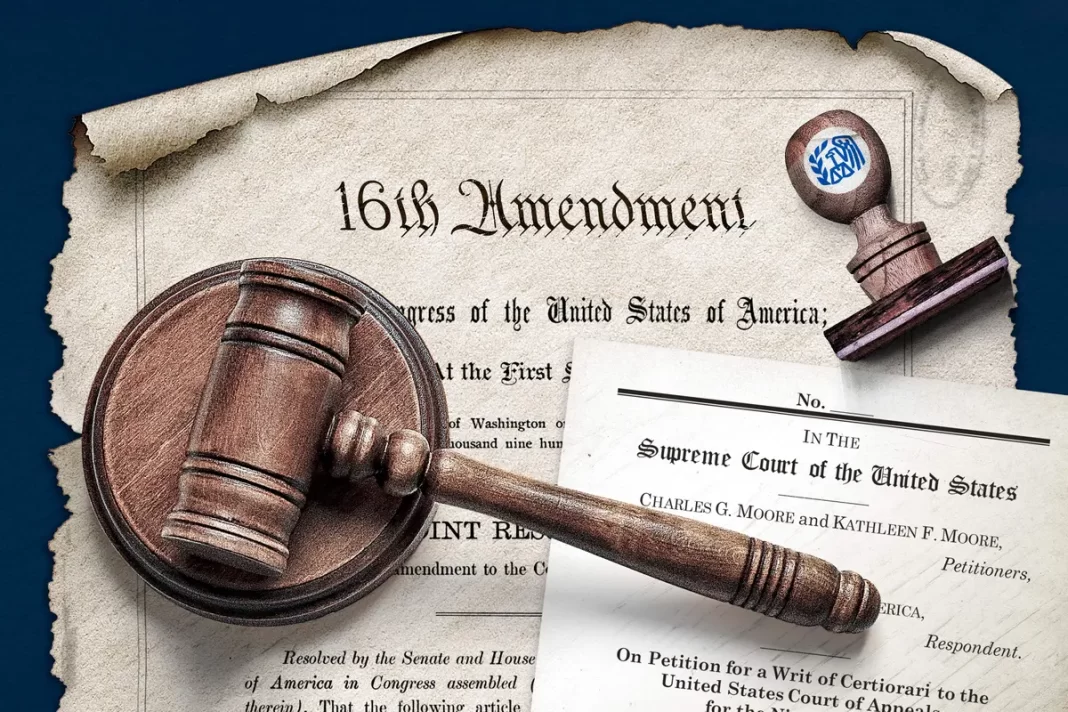The Mandatory Repatriation Tax of 2017, which taxes unrealized capital gains overseas, is under the Supreme Court’s microscope.
The Supreme Court on Dec. 5 will take up an important but little-noticed case about “unrealized” income that considers the constitutional limitations on federal taxing power.
The case is significant because the court could use it to strike down the Mandatory Repatriation Tax (MRT), also known as the Section 965 transition tax, which was part of the Tax Cuts and Jobs Act approved by the Republican-controlled Congress in 2017 and signed into law by then-President Donald Trump.
Conservative constitutionalists say if the Supreme Court finds that the MRT violates the 16th Amendment to the Constitution, such a legal precedent could prevent Congress from enacting legislation to tax wealth.
Wealth tax proposals regularly surface in Congress. For example, Sen. Ron Wyden (D-Ore.) recently introduced a plan to tax the unrealized capital gains of high earners.
Liberal groups worry that invalidating the tax law could unleash chaos.
The left-leaning Institute on Taxation and Economy Policy said the case “could become the most important tax case in a century.”
That’s because “a broad ruling could destabilize our tax system, enrich many profitable corporations, and widen existing economic and racial inequalities.”
Since the 1960s, corporations have been able to move income across borders to avoid taxation. If the law is erased, “the floodgates to offshore tax dodging” could be opened “on a scale never seen before,” the group said in a recent commentary.
The 2017 law changed the way foreign income of U.S. corporations was taxed. Lawmakers created the tax because in their view too much money was being invested abroad and not benefiting U.S. tax coffers.
Before the change, much of that income wasn’t taxed until it returned, or was repatriated, to the United States. To transition to the new system, Congress imposed a one-time tax on outstanding unrepatriated foreign earnings of U.S. corporations.
The law taxes U.S. corporate earnings abroad going back 30 years, even if the earnings haven’t been distributed. The statute also applies to U.S. taxpayers with 10 percent or more of shares in an overseas corporation as of the end of 2017.








